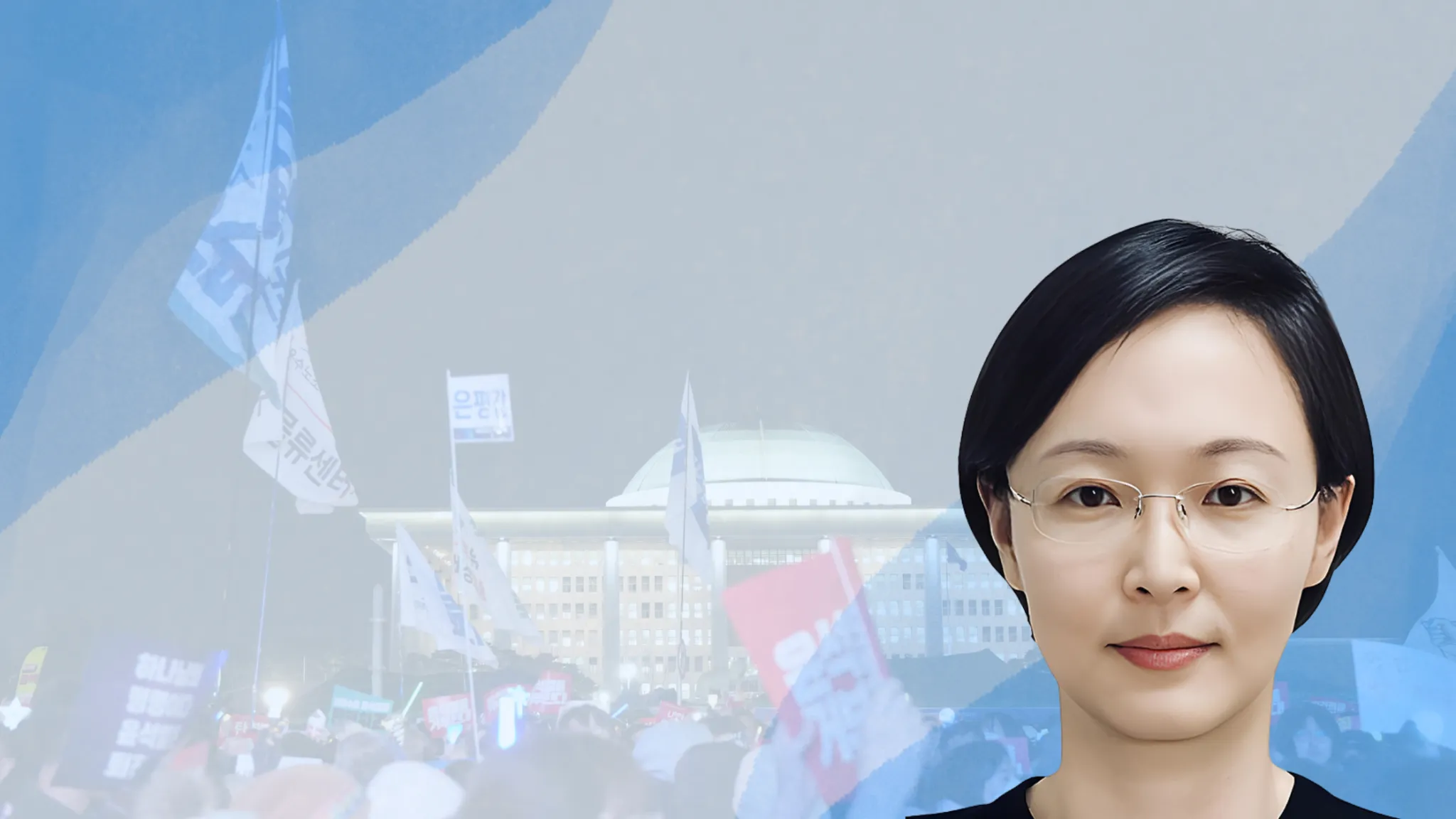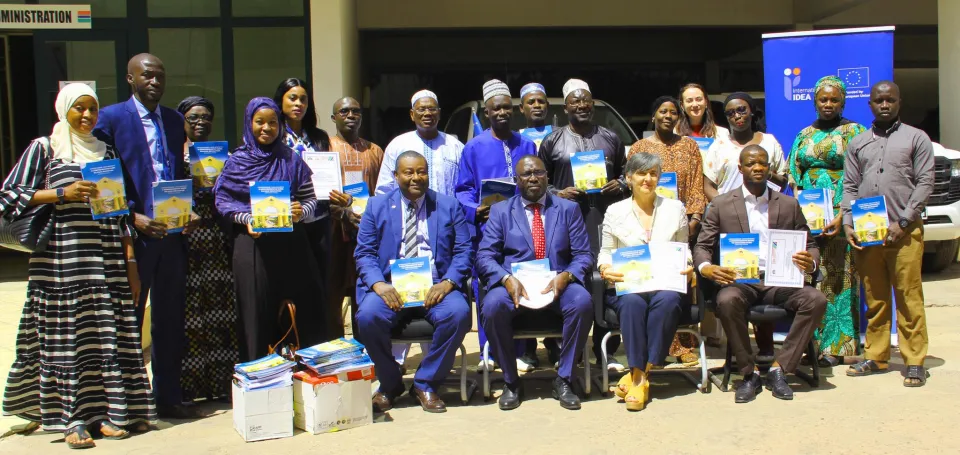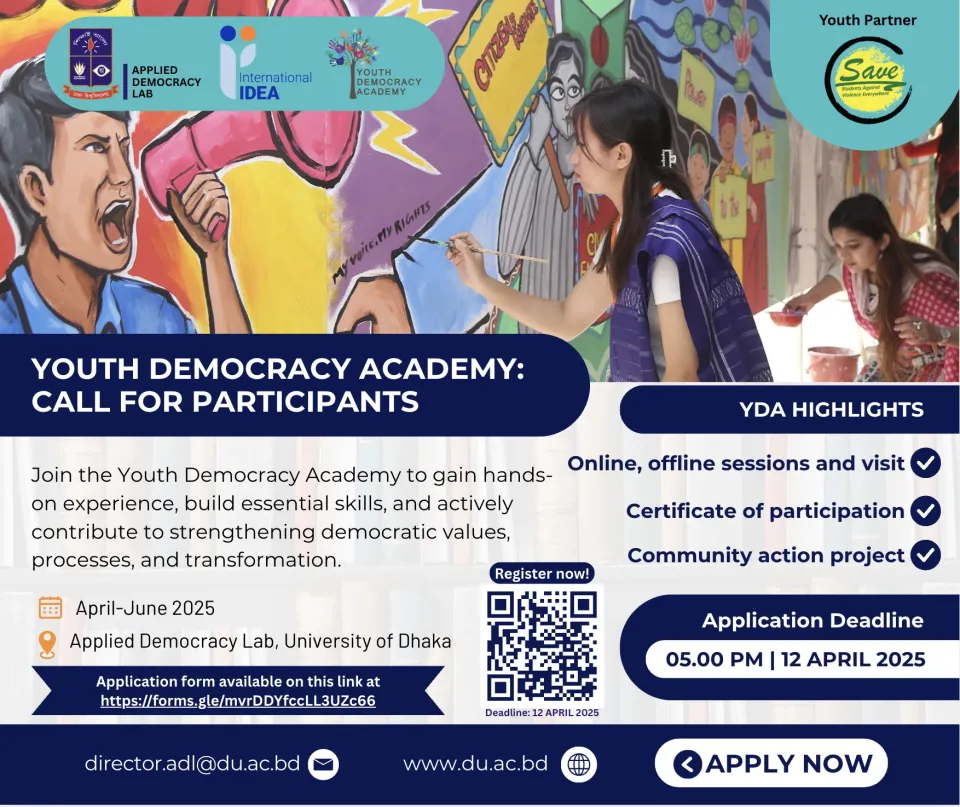Unpacking President Yoon’s martial law attempt: A Q&A with Dr Jeong-In Yun on South Korea’s democracy

Disclaimer: Opinions expressed in this commentary are those of the authors and do not necessarily represent the institutional position of International IDEA, its Board of Advisers or its Council of Member States.
On 3 December 2024, President Yoon Suk-yeoul surprised South Koreans and the world by declaring emergency martial law, alleging opposition lawmakers’ anti-state activities as a justification. The imposition of martial law, permitted only during wartime or national emergencies, was revoked mere hours later as lawmakers swiftly voted to reject it amid mass protests.
Yoon’s action recalled South Korea’s authoritarian past, marking the 17th martial law declaration in the country’s history and the first instance of its use since the country’s transition to democracy in the late 1980s.
On 14 December, lawmakers impeached Yoon for acting unconstitutionally – the second president to face impeachment in less than a decade. He remains suspended until the Constitutional Court rules to either reinstate him or remove him from office permanently. Adding fuel to the fire, acting president Prime Minister Han Duck-Soo was impeached on 27 December for failing to fill vacancies in the Constitutional Court, a requirement for the impeachment process to proceed. Finance Minister Choi Sang-mok is currently the acting president.
In a month of many firsts, on 15 January, Yoon also became the first sitting president to be arrested on charges of insurrection, treason and abuse of power following a weeks-long standoff – separate from his impeachment trial.
To explore the impact of recent events on South Korea’s democracy, I spoke with Dr Jeong-In Yun, a research professor and constitutional law expert at Korea University in Seoul, South Korea.
What key events led President Yoon to declare martial law?
President Yoon declared martial law amid a serious political deadlock that has persisted since the April 2024 election, when the opposition won an overwhelming majority. They currently hold nearly two-thirds of the seats in the National Assembly. Tensions escalated over budget disputes and several controversies involving first lady Kim Keon-hee, which were related to bribery and a stock price manipulation case. Inadequate lenient investigation thereof led to the impeachment of the prosecutors in charge and the chair of the Board of Audit and Inspection (BAI). A special investigation law was expected to be passed by the opposition, which Yoon vetoed.
Yoon claimed that anti-state forces were behind the opposition's control of the Assembly and that it was created by election fraud. Upon this, he insisted that martial law was necessary to combat such a crisis, although the claims of election fraud (allegedly leading to the opposition’s victory in the April election) that Yoon and his supporters used to support this narrative were dismissed in over 200 cases by the courts as unfounded.
The declaration of martial law appears driven more by Yoon's personal ambition, with preliminary investigations showing he had been planning it for months, suggesting a coup-like motive. This move is reminiscent of autocratic measures not seen in South Korea for 44 years, surprising many in a time of relative peace.
Are any steps being taken to ensure the resilience of South Korea’s democratic institutions? What legal or constitutional reforms might be considered to prevent something similar from happening in the future?
The current situation is expected to take several months to stabilize, with institutional and non-institutional responses needed. The impeachment trial and separate criminal proceedings are already underway.
To prevent future occurrences at the institutional level, it’s crucial that those involved in the planning and execution of the self-coup attempt are thoroughly punished. In this regard, several amendment bills have been submitted to the National Assembly that would exclude serious crimes like insurrection from amnesties [under the Amnesty Act], and which emphasize strict punishments for coup plotters. Several martial law prevention laws are also being considered to enhance parliamentary control over its declaration.
On the non-institutional front, we are currently witnessing a huge generational, ideological and cultural gap between those who want to impeach the present and those who support him. People appear severely divided and antagonistic toward each other. As a constitutional law scholar, I think civic education is vital for bridging these divides and reinforcing constitutional values. Those who defended the president are also expressing a sense of patriotism, arguing that protecting the president is protecting the country. To this end, a legislative initiative for mandatory civic education may be necessary to better help citizens understand the Constitution and democratic principles.
In your earlier blog post (published before impeachment charges were filed), you note that it remains uncertain whether recent events reflect the strength of South Korea’s democracy or, conversely, signal democratic regression. Considering recent developments and responses, i.e. Yoon's impeachment, separate legal charges, etc., how do you view the situation now?
It is evident that abuse of martial law without a crisis is both unconstitutional and a move towards autocracy. Yet, the recent martial law was lifted within six hours, a significant change from past instances (40, 50 or 60 years ago) where it lasted several months. Following this, the impeachment trials of the president commenced, and after this, his arrest [despite resistance], marking the first time a sitting president has been arrested, detained and indicted in South Korea’s history.
Despite the divide in public opinion, South Korea’s democracy has shown resilience. While challenges were exposed, recent events demonstrate that South Korea has built a strong democratic foundation over the past 40 years that will not be easily shaken. There were no violent military reactions; the situation was managed through parliamentary processes and ongoing legal proceedings. We witnessed the fearless resistance of citizens immediately, and the media provided transparent coverage.
However, some citizens reacted violently against the courts regarding the president’s detention, highlighting concerning trends similar to other countries of far-right groups fuelled by misinformation. On 19 January, pro-Yoon supporters stormed a Seoul court after a decision to extend his detainment. While diverse opinions are part of democracy, the use of violence to express dissent poses a serious threat. South Korea has had a tumultuous constitutional history, but the court had not been attacked for any reason until this January.
How might these events influence future elections and political engagement in South Korea?
Firstly, the impeachment cases are likely to be resolved by mid-March. If the president is removed, then a presidential election will follow within 60 days, with polls currently favouring opposition leader Lee Jae-myung of the Democratic Party of Korea, who narrowly lost the last presidential election to Yoon in 2022. While the ruling party is arguing Yoon’s impeachment trial is unjustifiable, they are already discussing potential candidates for the next election.
Public support for the ruling party has declined recently, largely due to their defence of the president and refusal to participate in the impeachment vote. However, the opposition is also facing scrutiny for being uncooperative and creating a political deadlock in the first place. Thus, the ruling party’s popularity has surprisingly recuperated from this and is now close to the opposition party’s.
The dynamic nature of Korean politics makes it extremely difficult to predict the immediate impacts on the next general election in 2028. The outcome of a potential presidential election in the Spring would significantly impact party support.
Lastly, it is very encouraging to see young people in South Korea becoming more politically engaged through protests and expressing their opinions. Politically, however, it is also deeply concerning that there appears to be a growing, serious divide in political leanings and attitudes between men and women in their twenties and thirties.
Acting president Han Duck Soo, who took that office following Yoon’s impeachment, was himself impeached on 27 December for failing to fulfil his duties by refusing to appoint three Justices to fill vacancies from expired tenures on the Constitutional Court. This procedural requirement was essential for Yoon’s impeachment trial. What are your thoughts on the appointment of Justices to the Constitutional Court in this situation, and its impact on Yoon’s impeachment proceedings?
The appointment of judges to the Constitutional Court has sparked significant debate amid the ongoing impeachment proceedings. The current acting president, Finance Minister Choi Sang-mok, appointed two Justices (one each from the opposition and ruling party) on 31 December, but withheld the appointment of a third liberal Justice, citing a lack of agreement between the opposition and ruling party.
In response, the National Assembly filed a competence dispute with the Constitutional Court, arguing such selective appointments were unconstitutional. The Court is set to decide on
While ideally, all nine Justices should be present for the impeachment decision, a previous case [Park Geun-hye in 2017] was resolved with eight Justices. Some argue that the political leanings of the appointed Justices, whether conservative or liberal, may influence the outcome of the trial. However, given the clear constitutional violations involved, it’s expected that the Justices will unanimously uphold the impeachment, regardless of their political backgrounds.
This interview has been edited for length and clarity.




